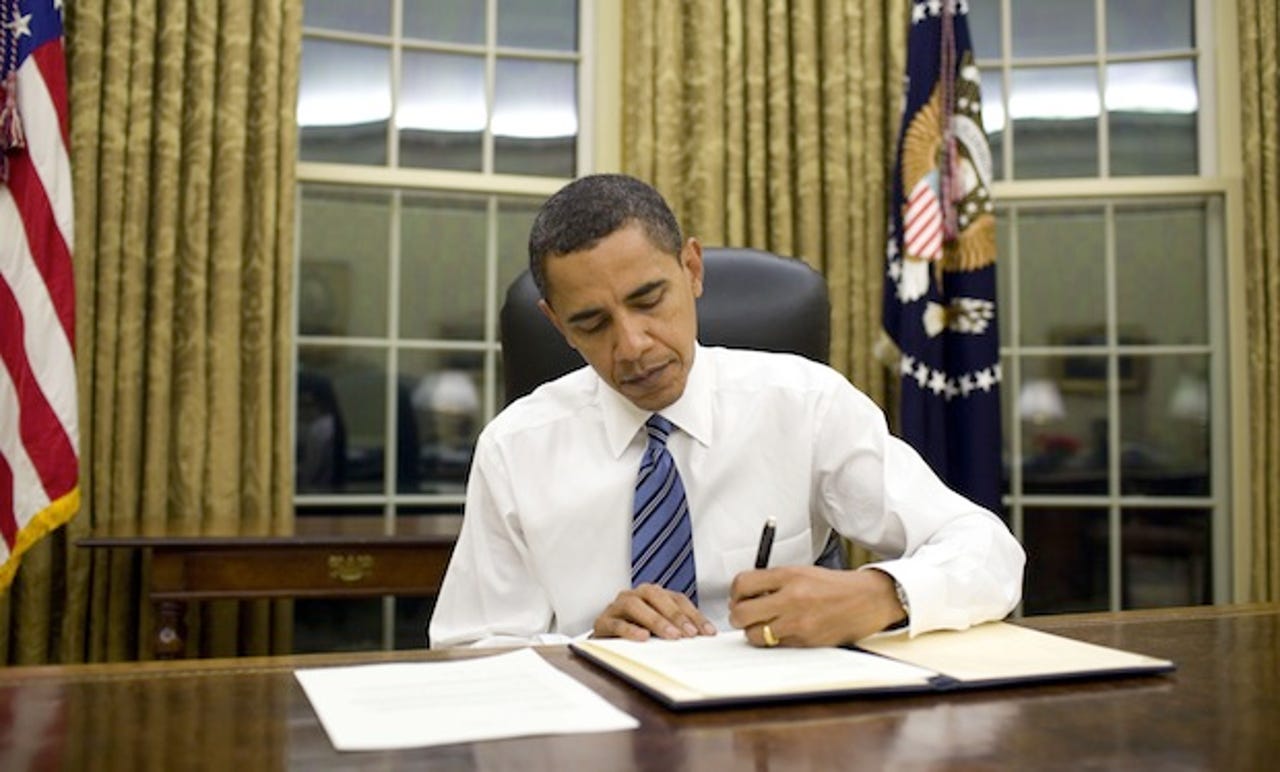Obama can 'order pre-emptive cyber-attack' if U.S. faces threat


At a time where the U.S. continues to work on its cyber-warfare strategy, a 'secret legal review' of the use of America's cyber-arsenal has concluded that the U.S. government can launch a cyber-attack against a threatening nation if the country needs to defend itself.
But the decision ultimately falls to the commander-in-chief, President Obama, in what could ultimately be considered an act of war on the world stage.
According to a piece by The New York Times—which in recent weeks suffered its own spate of cyber-attacks by the Chinese—a source within the administration speaking on the condition of anonymity said that the new cyber-policies have set the way for the military and U.S. intelligence agencies to deploy cyberweapons against other nations.
It comes at a time where Obama's second-term administration is currently reviewing the range of cyber-weapons the country has in its possession in order to determine how to protect U.S. critical national infrastructure and national interests from online cyber-attacks.
According to The Times, the decision for the president to authorize such a pre-emptive attack is "among several" other decisions reached in recent weeks and months, as the administration remains poised to "approve the nation's first rules for how the military can defend, or retaliate, against a major cyberattack."
One described exception would allow U.S. authorities to disable an adversary's air defense system during a tactical drone strike, for instance. But, on the most part, the administration's review would focus on what "constitutes reasonable and proportional force" to preventing or striking back against a cyber-attack.
Such new policies will allow the U.S. responds to potential attacks on its systems and infrastructure "by injecting... adversaries... with destructive code," even if there is no declaration of war.
After all, in this day and age, information and data security is just as important as anti-aircraft defenses and a secure national border. A cyber-attack can be just as precise and as damaging as a nuclear strike, but one will kill potentially hundreds of thousands in seconds while the other will—at least on the most part—affect inanimate and non-living infrastructure.
It comes only a fortnight after the Homeland Security Secretary Janet Napolitano warned that U.S. networks were vulnerable to hackers and that critical U.S. national infrastructure—including water, electricity, and gas networks—could be hit by a "cyber-9/11".
According to Defense Secretary Leon Panetta, taking the words from his Homeland Security colleague, the 'red line" in which U.S. authorities would strike back, would have to resemble a "cyber 9/11."
One of the more significant parts of the U.S.' cyber-warfare strategy was Stuxnet, a worm that attacked Iranian nuclear facilities, which first came to light in 2010, but the Obama administration is not believed to have since been part of or involved in similar known efforts.